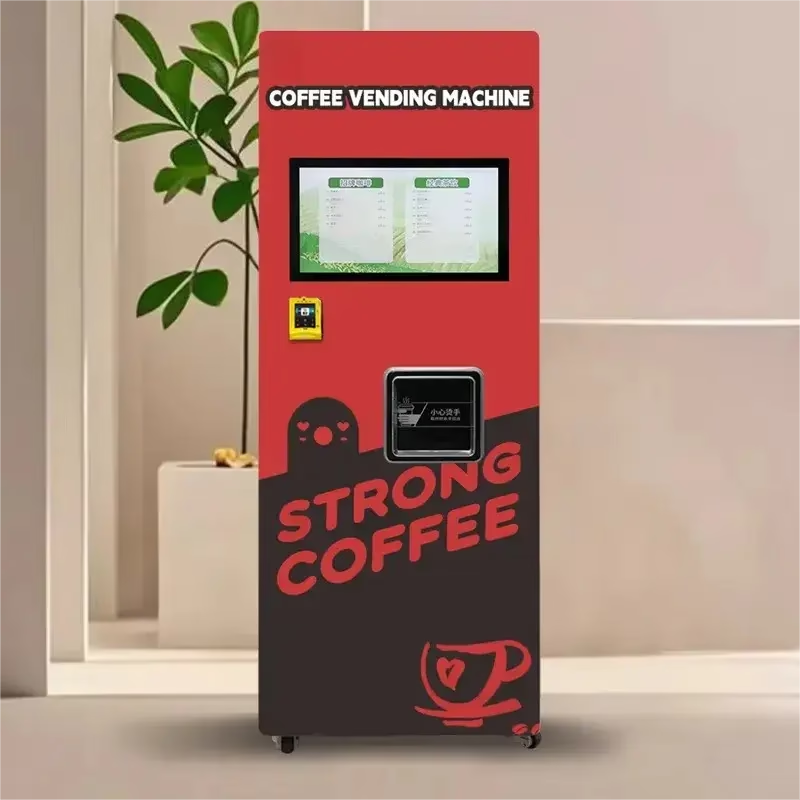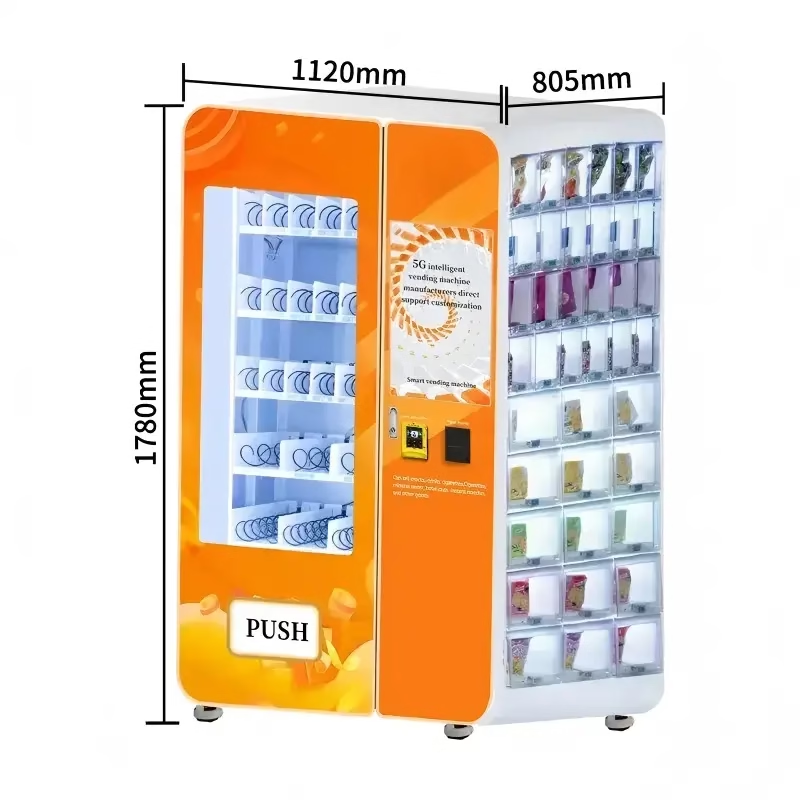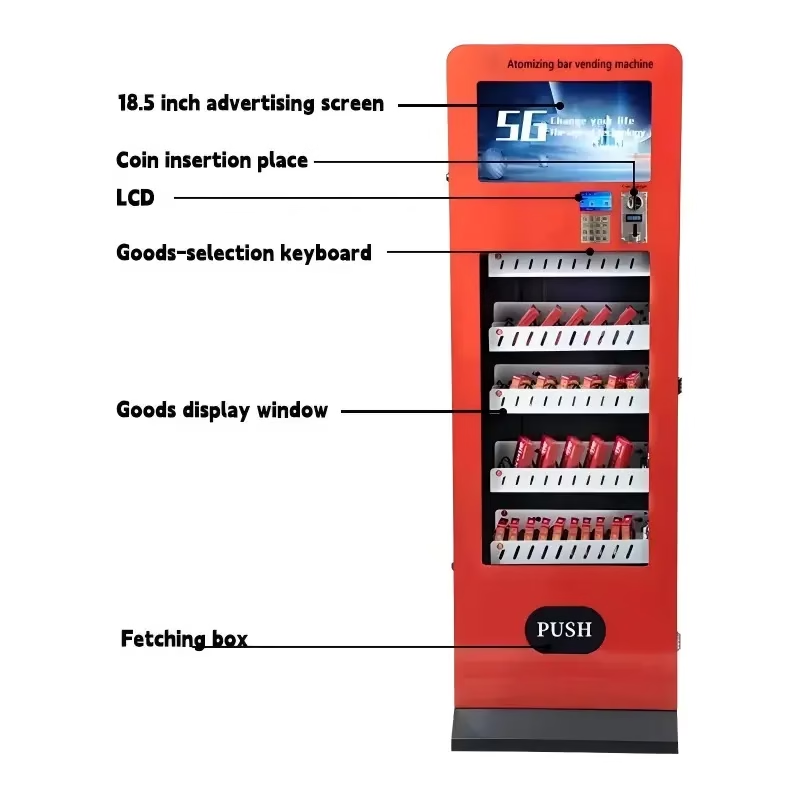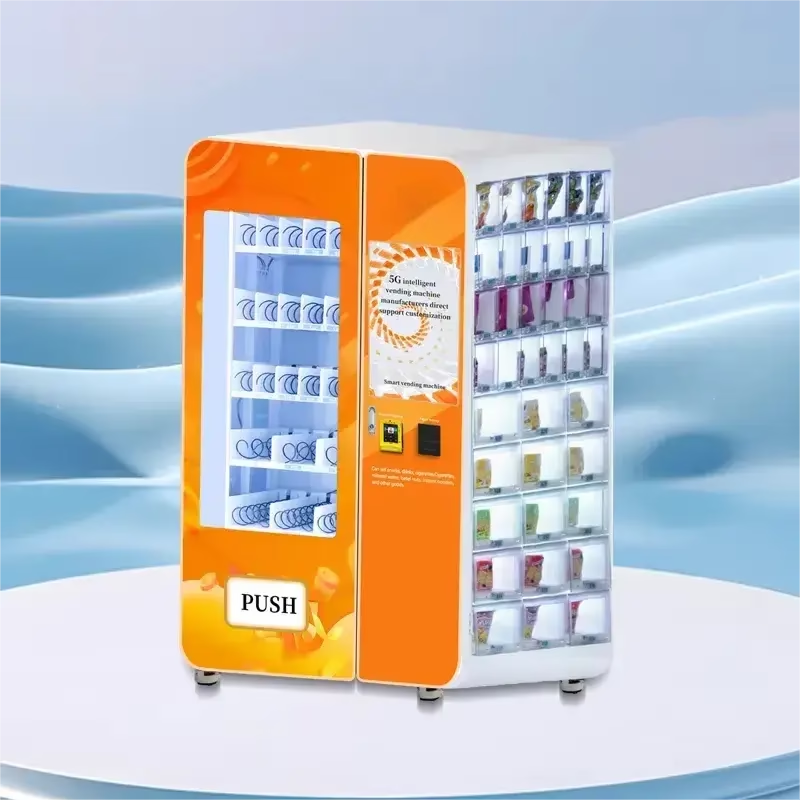When your vending machine stops working, you need fast and affordable solutions. Most common vending machine problems include product jams, payment failures, power issues, and display malfunctions, with repair costs typically ranging from $150-375 per service call plus parts.
However, understanding when to tackle repairs yourself versus calling professionals can save you hundreds of dollars. Moreover, knowing the warning signs helps prevent costly breakdowns that could shut down your machine for weeks. Additionally, modern smart vending machine solutions now offer remote monitoring capabilities that significantly reduce unexpected repair needs. What specific problems should you watch for, and how can you minimize repair costs while maximizing uptime?

Quick Reference: Vending Machine Repair Costs & Issues
| Repair Type | Average Cost | Typical Timeframe | DIY Possible? |
|---|---|---|---|
| Jam Clearing | $0-50 | 15-30 minutes | Yes |
| Payment System Fix | $150-300 | 1-2 hours | Limited |
| Compressor Repair | $400-687 | 2-4 days | No |
| Display Replacement | $200-450 | 1-3 hours | Limited |
| Full Service Call | $150-375 | 2-4 hours | No |

Table of Contents
What Are the Most Common Vending Machine Problems?
The five most frequent vending machine issues are product jams (32%), payment system failures (28%), power problems (18%), display malfunctions (12%), and temperature control issues (10%). These problems account for over 85% of all service calls nationwide.
Product jams occur when items get stuck in dispensing mechanisms, often due to improper loading or worn coil springs. Furthermore, payment system failures frequently result from coin mechanism buildup or card reader malfunctions. Additionally, power problems range from simple outlet issues to complex electrical component failures.
Common Problem Breakdown:
- Jam Issues: Coil springs wear out, products get wedged, or oversized items block mechanisms
- Payment Failures: Coin acceptors clog with debris, bill validators jam, or card readers lose connectivity
- Power Problems: Outlet failures, internal wiring issues, or component burnout
- Display Issues: LCD screens fail, LED lights burn out, or control boards malfunction
- Temperature Control: Compressor problems, refrigerant leaks, or thermostat failures
According to the International Vending Management Association, regular maintenance can prevent up to 70% of these common issues. Therefore, implementing preventive care significantly reduces emergency repair needs.
How Much Does Vending Machine Repair Actually Cost?
Vending machine repair costs vary widely based on problem complexity, with diagnostic fees ranging $85-150, labor rates $85-195 per hour, and parts costs $25-800 depending on components. Most service calls total $150-375, not including major part replacements.
Labor costs depend heavily on your location and technician expertise. For instance, urban areas typically charge higher rates than rural locations. Meanwhile, specialized repairs for smart coffee vending machines often cost more due to advanced technology requirements.
Detailed Cost Breakdown:
| Service Type | Cost Range | What’s Included |
|---|---|---|
| Basic Diagnostic | $85-150 | Problem identification, basic cleaning |
| Jam Clearing | $50-125 | Product removal, coil adjustment |
| Payment System Repair | $150-300 | Coin/bill mechanism service, testing |
| Compressor Replacement | $400-687 | New compressor, refrigerant, labor |
| Display Screen Replacement | $200-450 | New LCD/LED display, programming |
| Full Machine Overhaul | $800-1,500 | Complete mechanical/electrical service |
Additionally, emergency after-hours service typically costs 1.5-2x standard rates. However, many automatic vending machine operators find that investing in quality equipment reduces long-term repair expenses.
Can You Fix a Vending Machine Yourself?
Many basic vending machine repairs are DIY-friendly, including clearing jams, replacing light bulbs, cleaning coin mechanisms, and resetting electronic displays. However, electrical work, refrigeration repairs, and complex programming should always be handled by certified technicians.
Safety considerations are paramount when attempting DIY repairs. First, always disconnect power before opening any panels. Next, wear appropriate protective equipment including safety glasses and gloves. Furthermore, keep manufacturer manuals nearby for reference.
DIY-Safe Repairs:
- Product Jams: Remove stuck items, realign coil springs, clean dispensing area
- Basic Cleaning: Wipe down coin slots, clean glass, sanitize keypads
- Simple Resets: Power cycle machine, reset error codes, reload products
- Light Replacement: Change burned-out LED strips or bulbs
Professional-Only Repairs:
- Electrical component replacement
- Refrigeration system work
- Payment system programming
- Circuit board repairs
- Compressor maintenance
According to Vending Times Magazine, operators who perform basic maintenance themselves save an average of $200-400 annually per machine. Therefore, learning simple repair techniques provides excellent ROI.

What Skills Do Modern Vending Machine Technicians Need?
Today’s vending machine technicians require a blend of traditional mechanical skills and modern technology expertise, including IoT connectivity, mobile payment systems, touchscreen interfaces, and remote monitoring software. Approximately 75% of service calls now involve some form of digital troubleshooting.
The evolution toward digital vending machines has dramatically changed repair requirements. Consequently, technicians must understand both hardware and software components. Additionally, cashless payment systems require specialized knowledge of card readers and mobile app integration.
Essential Technical Skills:
Traditional Skills:
- Basic electrical troubleshooting
- Mechanical component repair
- Refrigeration system maintenance
- Coin and bill mechanism service
Modern Technology Skills:
- IoT device configuration
- Mobile payment integration
- Touchscreen calibration
- Remote monitoring setup
- Software updates and programming
Moreover, customer service skills become increasingly important as interactive vending machines require more user support. Therefore, successful technicians combine technical expertise with communication abilities.
The U.S. Bureau of Labor Statistics reports that vending machine servicers earn median wages of $38,000-52,000 annually, with higher pay for those skilled in advanced technologies.
How Often Do Vending Machines Break Down?
Statistical analysis shows that well-maintained vending machines experience minor issues every 3-4 months and major breakdowns every 12-18 months. However, machines without regular maintenance break down 3x more frequently, resulting in significant revenue losses.
Breakdown frequency varies significantly based on machine age, location, and maintenance schedule. For example, machines in high-traffic areas experience more wear but generate higher revenue to offset repair costs. Meanwhile, snack vending machines in schools typically see heavier usage than office locations.
Breakdown Statistics by Machine Type:
| Machine Type | Minor Issues/Year | Major Repairs/Year | Average Downtime |
|---|---|---|---|
| Snack Machines | 3-4 incidents | 0.8 incidents | 1-2 weeks |
| Beverage Machines | 2-3 incidents | 1.2 incidents | 2-3 weeks |
| Combo Machines | 4-5 incidents | 1.5 incidents | 2-4 weeks |
| Specialty Machines | 2-4 incidents | 0.5 incidents | 1-3 weeks |
Furthermore, implementing preventive maintenance reduces breakdown frequency by up to 60%. Additionally, smart vending machines with remote monitoring capabilities alert operators to potential issues before complete failures occur.
When Should You Call a Professional Repair Service?
Call professional repair services immediately for electrical issues, refrigeration problems, payment system malfunctions, or any situation involving safety risks. Additionally, if DIY attempts fail or problems recur frequently, professional diagnosis saves money long-term.
Recognizing when to seek help prevents minor issues from becoming major expenses. For instance, attempting complex electrical repairs without proper training can damage expensive components or create safety hazards. Moreover, warranty considerations often require professional service to maintain coverage.
Professional Service Indicators:
Immediate Professional Help:
- Electrical sparks or burning smells
- Refrigeration system failures
- Payment system completely non-functional
- Repeated error codes after reset attempts
- Physical damage to machine structure
Consider Professional Consultation:
- Multiple simultaneous problems
- Recurring issues despite repairs
- Warranty work requirements
- Insurance claim documentation needs
The National Automatic Merchandising Association recommends establishing relationships with certified service providers before emergencies occur. Therefore, having reliable technician contacts minimizes downtime during critical situations.

Which Vending Machines Are Easiest to Repair?
Vending machines with modular designs, standardized components, and comprehensive service documentation are easiest to repair. Machines featuring tool-free panel access, clear error displays, and readily available parts typically reduce service time by 30-50%.
When selecting new equipment, repairability should factor heavily into purchasing decisions. For example, OBOVending’s smart vending machine solutions incorporate modular construction specifically designed for simplified maintenance. Additionally, machines with diagnostic displays help technicians quickly identify problems.
Repair-Friendly Features:
Design Elements:
- Modular component construction
- Tool-free panel access
- Clear component labeling
- Standard fastener types
Technology Features:
- Built-in diagnostic systems
- Error code displays
- Remote monitoring capabilities
- Self-diagnostic functions
Support Elements:
- Comprehensive service manuals
- Video troubleshooting guides
- Parts availability guarantees
- Technical support hotlines
Furthermore, manufacturers offering extensive training programs and technical support create better long-term service experiences. Additionally, choosing reliable vending machine manufacturers with established service networks ensures consistent parts availability and technical expertise.
How Does IoT Technology Change Vending Machine Repairs?
IoT-enabled vending machines revolutionize repair processes through predictive maintenance, remote diagnostics, real-time monitoring, and automated service scheduling. These smart systems can predict failures 2-3 weeks before they occur, reducing emergency repairs by up to 80%.
Modern smart vending technology transforms reactive repair models into proactive maintenance systems. Consequently, operators receive alerts about declining performance before complete failures occur. Moreover, technicians arrive on-site with appropriate parts and tools based on remote diagnostic data.
IoT Repair Advantages:
Predictive Capabilities:
- Component wear monitoring
- Performance trend analysis
- Failure pattern recognition
- Maintenance scheduling optimization
Remote Diagnostics:
- Real-time system monitoring
- Error code transmission
- Performance metric tracking
- Inventory level reporting
Efficiency Improvements:
- Reduced diagnostic time
- Targeted repair approaches
- Optimized parts inventory
- Minimized machine downtime
According to IoT Analytics, IoT-enabled vending machines show 40% fewer unexpected breakdowns compared to traditional units. Therefore, investing in connected technology provides substantial long-term savings through reduced repair costs and increased uptime.
Conclusion: Maximize Your Vending Machine Performance with Smart Repair Strategies
Understanding vending machine repair costs, common problems, and maintenance strategies empowers you to make informed decisions that protect your investment and maximize profitability. By implementing regular preventive maintenance, knowing when to attempt DIY repairs versus calling professionals, and choosing equipment with repair-friendly designs, you can significantly reduce operational costs while improving machine reliability.
The future of vending machine maintenance lies in smart technology and predictive systems that prevent problems before they occur. Modern IoT-enabled machines not only reduce repair frequency but also provide valuable operational data that helps optimize performance and profitability.
Ready to upgrade to smarter, more reliable vending solutions?
Explore OBOVending’s Smart Technology Solutions →
Our expert team at OBO Electronic Tech Group specializes in providing cutting-edge vending machines designed for minimal maintenance and maximum uptime. From smart coffee machines to healthy food vending solutions, we offer comprehensive support that includes installation, training, and ongoing technical assistance.
Contact us today to learn how our innovative vending technology can reduce your repair costs while increasing your revenue potential. Let’s transform your vending operation with smart solutions that work as hard as you do.
Get Our Full Vending Machine Catalog
Fill out the form to instantly access our product catalog and see all models, specs, and pricing options.

 Privacy respected. No spam. Ever.
Privacy respected. No spam. Ever.